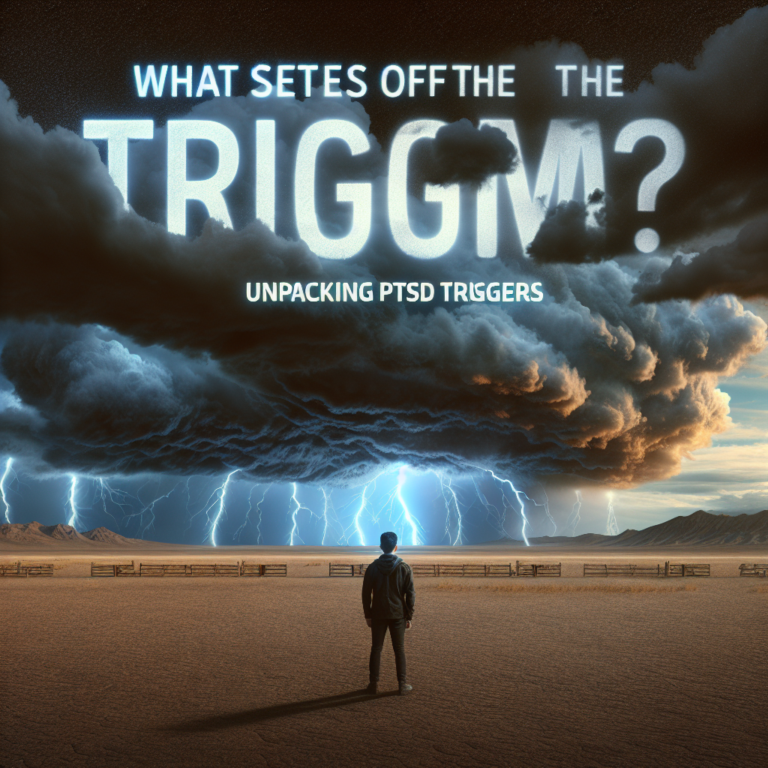
Unlocking Better Sleep: How Cognitive Behavioral Therapy Can Transform Insomnia Treatment
Introduction
In our fast-paced lives, sleep often takes a backseat to work, social obligations, and screen time. The impact of poor sleep is not just an inconvenience; it can escalate into serious health issues, affecting everything from mental wellbeing to physical health. The urgent need for effective sleep solutions has led to a growing interest in non-pharmacological treatments for insomnia. One powerful approach is Cognitive Behavioral Therapy (CBT), a method that’s proving to be revolutionary in the quest for dynamic sleep health. In this article, we’ll explore how Unlocking Better Sleep: How Cognitive Behavioral Therapy Can Transform Insomnia Treatment can lead to lasting change.
Understanding Insomnia: The Basics
Before delving into the transformative effects of CBT, it’s crucial to comprehend what insomnia is. Insomnia is not merely trouble falling asleep; it can manifest as:
- Difficulty falling asleep
- Frequent awakenings
- Waking up too early
- Non-restorative sleep
According to the American Academy of Sleep Medicine, 10-30% of adults suffer from chronic insomnia. This statistic highlights an urgent need for effective intervention strategies.
The Cognitive Behavioral Therapy Approach
What is CBT?
Cognitive Behavioral Therapy is a structured, time-limited psychotherapy that aims to change patterns of thinking or behavior that are causing people’s problems. When applied to insomnia, CBT focuses on altering the thoughts and behaviors surrounding sleep.
Key Components of CBT for Insomnia
Cognitive Restructuring
- Identifying and challenging negative thoughts related to sleep, such as "I’ll never fall asleep" or "If I don’t sleep well tonight, my day will be ruined."
Sleep Hygiene Education
- Involves educating individuals on practices that promote better sleep, such as creating a comfortable sleep environment and establishing a consistent sleep schedule.
Stimulus Control
- This component encourages individuals to associate the bed with sleep instead of wakefulness. It involves guidelines like only using the bed for sleep and sex, not for activities like reading or watching TV.
- Sleep Restriction Therapy
- This method involves limiting the time spent in bed to the actual amount of time spent sleeping, effectively consolidating sleep and improving its quality.
The Science Behind CBT for Insomnia
Research has shown that CBT can be more effective than medications in treating insomnia. A meta-analysis published in the journal Sleep found that individuals receiving CBT reported significant improvements in sleep quality and quantity compared to those who relied solely on medications.
Case Study: Sarah’s Journey to Sleep Recovery
Background: Sarah, a 34-year-old marketing professional, struggled with insomnia for years. She consistently felt tired, relied on caffeine to get through her workdays, and experienced heightened anxiety each night as bedtime approached.
Intervention: After consulting her doctor, Sarah began a CBT program specifically designed for insomnia. Through cognitive restructuring, she learned to challenge her anxious thoughts about sleep. She implemented sleep hygiene practices and followed stimulus control techniques.
Outcome: Within eight weeks, Sarah reported falling asleep faster and feeling more refreshed in the mornings. Her mental clarity improved at work, and she noticed an overall enhancement in her mood.
Analysis: This case highlights the holistic benefits of CBT. Not only did Sarah experience improved sleep, but her lifestyle and emotional wellbeing also transformed, showcasing the multiplier effect of enhanced sleep quality.
Additional Insights into CBT for Insomnia
Availability and Accessibility
CBT for insomnia is more accessible than ever. Many therapists offer online sessions, and there are even mobile applications designed to guide users through the CBT process. This online approach broadens the scope of who can benefit from these techniques, especially for those residing in remote areas or those who prefer digital solutions.
Combining CBT with Other Treatments
While CBT can be highly effective on its own, it can also complement other forms of treatment. For instance, some individuals may find the best results through a combination of CBT and pharmacological options, especially in severe cases of insomnia.
Potential Challenges in Implementation
Some may find it difficult to adhere to the structured routine that CBT requires. Similar to adopting new habits, it takes time to adjust to the changes. Working with a trained therapist can provide the support needed to face these challenges and stay committed to the process.
Unlocking Better Sleep: Real-Life Applications
Patient Testimonials
As part of a clinical study, several participants shared their experiences with CBT for insomnia. Common themes emerged:
- Increased Self-Efficacy: Many reported feeling empowered and more in control over their sleep issues after completing CBT.
- Improved Emotional Resilience: Participants noted decreased anxiety and frustration surrounding sleep, allowing them to approach challenges with a clearer mindset.
Conclusive Evidence From Research
A comprehensive study published in JAMA Internal Medicine indicated that over 70% of participants who completed a CBT program for insomnia experienced a decrease in sleep disturbances. This study serves as pivotal evidence that aligns with the insights provided throughout this article on Unlocking Better Sleep: How Cognitive Behavioral Therapy Can Transform Insomnia Treatment.
Tools and Resources for Implementing CBT
For those looking to start their journey toward better sleep, consider exploring the following resources:
- Apps like Sleepio: These offer CBT-based programs conveniently through your smartphone.
- Books such as "The Sleep Solution": Written by Dr. W. Chris Winter, this book dives deep into sleep science and offers actionable strategies for enhancing sleep.
- Online Support Groups: These can help maintain accountability while providing a platform for sharing experiences and tips.
Conclusion
Unlocking Better Sleep: How Cognitive Behavioral Therapy Can Transform Insomnia Treatment is not just a theory; it’s an actionable method that has changed lives. By focusing on cognitive and behavioral changes, individuals can reclaim their nights and, thus, their lives. Whether it’s through direct therapy or utilizing accessible resources, people no longer need to suffer in silence from insomnia. As you embark on your journey to deeper, more restorative sleep, remember—the key is not merely to sleep, but to unlock the better quality of life that comes with it.
FAQs
1. How long does CBT for insomnia take to show results?
The duration of CBT can vary, usually ranging from 4-8 sessions, with noticeable improvements often occurring within a few weeks.
2. Is CBT for insomnia effective for everyone?
While CBT is highly effective for many, individual responses may vary. Consulting a sleep specialist can provide tailored recommendations.
3. Can I practice CBT techniques on my own?
Yes, various resources, such as apps and self-help books, can guide you through CBT techniques for insomnia. However, consulting a professional can enhance the process.
4. Are there any side effects of using CBT for insomnia?
CBT is a non-invasive treatment. Individuals may experience temporary discomfort when confronting anxious thoughts but generally report no significant side effects.
5. How does CBT compare to sleep medications?
Research shows that CBT can provide longer-lasting benefits compared to medications, which may only offer temporary relief and come with potential side effects.
The insights detailed in this article highlight how Unlocking Better Sleep: How Cognitive Behavioral Therapy Can Transform Insomnia Treatment opens doors to a healthier future. With consistent application and the right resources, better sleep is within reach.

















